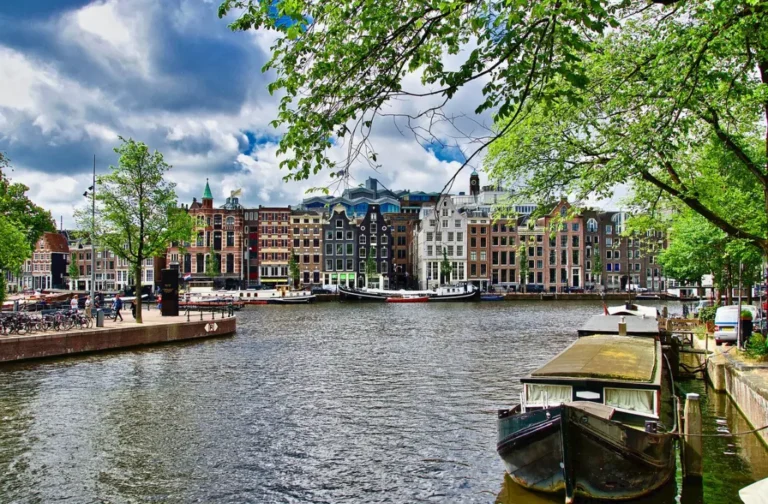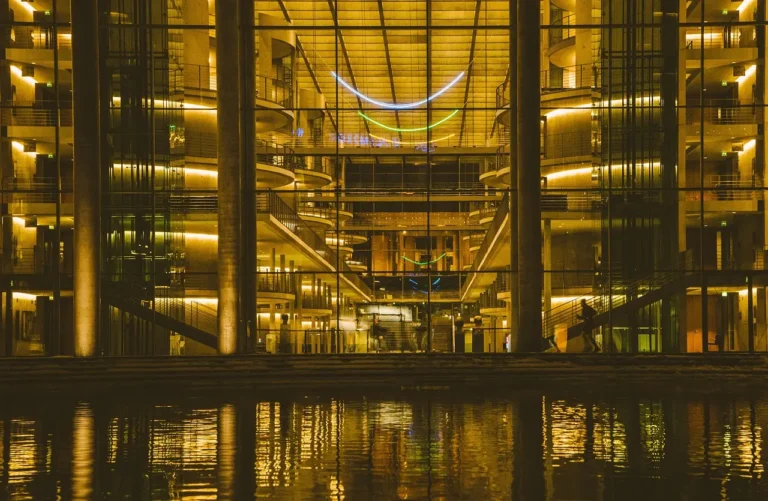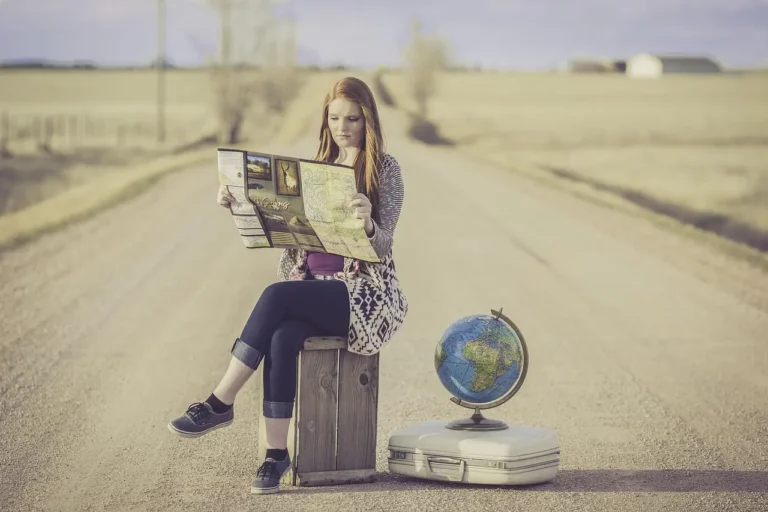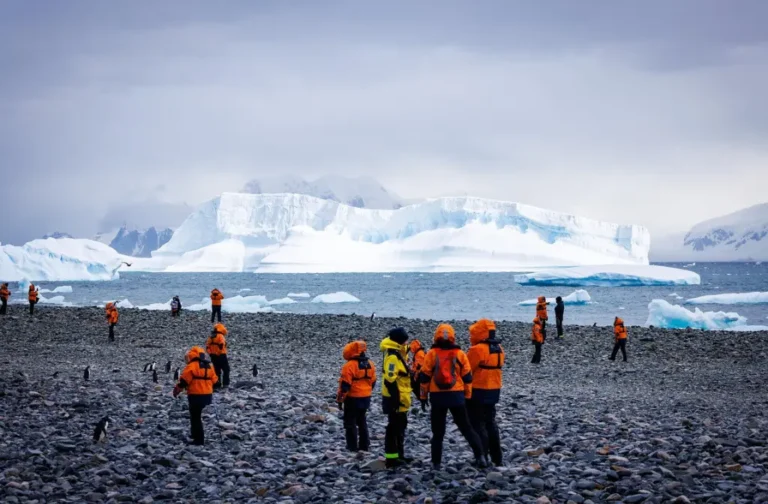Germany: 10 Historic Landmarks & Scenic Beauty to Explore
Table of Contents
A Journey Through Germany’s Timeless Charm
Imagine strolling through cobbled streets lined with medieval architecture, standing in awe of a towering Gothic cathedral, or hiking through rolling vineyards and pristine alpine landscapes. Germany is a land where history and natural beauty intertwine, offering an unparalleled travel experience for history buffs and nature lovers alike.
With over 50 UNESCO World Heritage Sites, Germany is a treasure trove of historic landmarks. Whether you’re exploring the romantic castles of Bavaria or wandering through the scenic Black Forest, there’s something for every traveler. In this guide, you’ll uncover Germany’s most breathtaking destinations, from its iconic travel landmarks to its hidden natural wonders.
🏰 Historic Landmarks That Define Germany
Hohenzollern Castle – A Fairytale Fortress
Perched atop a hill in Baden-Württemberg, Hohenzollern Castle is a storybook masterpiece that offers spectacular views of the Swabian Alps. Built in the 19th century, this neo-Gothic castle was the ancestral home of the Prussian royal family.
Why Visit?
- Stunning hilltop location with breathtaking views.
- Rich royal history dating back to the Middle Ages.
- A hidden gem compared to the more famous Neuschwanstein Castle.
Best Time to Visit: Spring and autumn, when the surrounding landscapes burst into color.
Neuschwanstein Castle – The Inspiration for Disney’s Sleeping Beauty Castle
Nestled in the Bavarian Alps, Neuschwanstein Castle is one of the most famous landmarks in Germany. Commissioned by King Ludwig II, this castle’s dreamy turrets and towers have captivated millions of visitors.
Insider Tips:
- Visit early morning or late evening to avoid peak crowds.
- Take the Marienbrücke (Mary’s Bridge) hike for the best panoramic view.
Brandenburg Gate – A Symbol of Unity
Located in Berlin, the Brandenburg Gate is a powerful symbol of Germany’s reunification. Originally built in the 18th century, it has witnessed pivotal moments in world history, from Napoleon’s conquest to the fall of the Berlin Wall.
Fun Fact: The Quadriga statue atop the gate was stolen by Napoleon in 1806 and later returned to Germany.
Cologne Cathedral – A Gothic Masterpiece
One of Germany’s most visited sites, Cologne Cathedral (Kölner Dom) is a marvel of Gothic architecture. It took over 600 years to complete and houses the shrine of the Three Wise Men.
Visitor Experience: Climb the 533 steps to the top for a stunning view of Cologne’s skyline.
🌿 Germany’s Breathtaking Natural Beauty
The Black Forest – A Fairytale Wonderland
With dense forests, charming villages, and cuckoo clock workshops, the Black Forest is one of Germany’s most enchanting destinations.
Must-Do Experiences:
- Drive the Black Forest High Road for scenic mountain views.
- Visit Triberg Waterfalls, one of the highest waterfalls in Germany.
- Explore the spa town of Baden-Baden for a relaxing retreat.
The Bavarian Alps – Home to Germany’s Most Stunning Landscapes
If you love adventure, the Bavarian Alps are a dream destination. The region is home to Zugspitze, Germany’s highest peak.
Best Activities:
- Take a cable car ride for unbeatable alpine views.
- Visit Eibsee Lake, a pristine turquoise lake near Zugspitze.
Saxon Switzerland National Park – A Hidden Gem for Hikers
Famous for its Bastei Bridge and dramatic sandstone formations, Saxon Switzerland is a paradise for outdoor lovers.
Ideal For:
- Hikers and nature photographers.
- Exploring Elbe Sandstone Mountains.
🌎 Unique Cultural Experiences in Germany
Oktoberfest – The World’s Largest Beer Festival
Held annually in Munich, Oktoberfest is a must-visit for beer lovers and cultural enthusiasts alike.
What to Expect:
- Traditional Bavarian beer halls and massive beer tents.
- Authentic cuisine like pretzels, bratwurst, and schnitzel.
Germany’s Christmas Markets – A Winter Wonderland
From Nuremberg to Dresden, Germany’s Christmas markets are the epitome of festive magic.
Must-Try Treats:
- Glühwein (mulled wine)
- Lebkuchen (gingerbread)
Carnival in Cologne – Germany’s Most Colorful Celebration
Taking place in February, Cologne’s Karneval features parades, street performances, and elaborate costumes.
🚆 Travel Tips & Practical Information
Best Time to Visit Germany
| Season | Weather | Best Activities |
|---|---|---|
| Spring (March-May) | Mild & Pleasant | Cherry blossoms in Bonn, fewer crowds |
| Summer (June-Aug) | Warm & Busy | Festivals, outdoor activities |
| Autumn (Sept-Nov) | Cool & Scenic | Oktoberfest, fall foliage |
| Winter (Dec-Feb) | Cold & Festive | Christmas markets, skiing in the Alps |
Transportation: How to Get Around Germany
- Trains: Deutsche Bahn offers efficient and scenic travel options.
- Car Rentals: Ideal for exploring small towns and countryside.
- Public Transport: Metro systems in Berlin, Munich, and Hamburg are well-connected.
🌿 Sustainable Travel Tips for Germany
- Stay in eco-friendly hotels certified by Green Key.
- Use public transport to reduce your carbon footprint.
- Support local artisans and family-run businesses.
🛍️ Must-Buy Souvenirs from Germany
- Cuckoo Clocks: Handmade in the Black Forest.
- Beer Steins: Traditional Bavarian craftsmanship.
- German Chocolate: Try brands like Ritter Sport or Milka.
🔚 Conclusion: Why Germany Should Be on Your Travel Bucket List
From its historic castles and iconic landmarks to its stunning natural wonders, Germany offers a diverse and unforgettable travel experience. Whether you’re an adventurer, a history enthusiast, or a cultural explorer, Germany has something for you.
✨ Germany is more than just a destination—it’s an experience waiting to be explored! ✨
❓ FAQs About Traveling to Germany
1. Can I Drink Tap Water in Germany?
Yes! Tap water in Germany is safe, clean, and high-quality. In restaurants, however, you may need to ask specifically for “Leitungswasser” (tap water), as bottled water is more commonly served.
2. Are Shops Really Closed on Sundays?
Yes, most stores, supermarkets, and shopping malls are closed on Sundays due to strict labor laws. However, restaurants, gas stations, and some convenience stores remain open. Train stations and airports also have shops open 7 days a week.
3. Can I Use My Credit Card Everywhere?
Germany is still a cash-friendly country, and many small businesses, cafes, and restaurants prefer cash over cards. It’s always a good idea to carry some euros with you.
4. Do German Hotels Have Air Conditioning?
Not always! Many hotels, especially older buildings and budget accommodations, do not have air conditioning. If you’re traveling in summer, check before booking.
5. Is Jaywalking Illegal in Germany?
Yes! Crossing the street against a red pedestrian light can result in a fine, and locals take traffic rules very seriously. Expect judgmental stares if you break this rule!
6. Are German Trains Always on Time?
Not necessarily! While German trains have a reputation for efficiency, delays are common, especially with long-distance Deutsche Bahn routes. Always allow some buffer time when planning your travel.
7. Can I Get Free Water in Restaurants?
Unlike in some countries, free tap water is not standard in German restaurants. You’ll usually need to order bottled water, which comes in “Sprudel” (sparkling) or “still” (still) varieties.
8. Do I Need to Validate My Train or Bus Ticket?
For regional trains, trams, and buses, yes! Many tickets need to be stamped at a validation machine before boarding. Failing to do so can result in a fine, even if you have a valid ticket.
9. What’s the Deal With Recycling in Germany?
Germany has one of the most advanced recycling systems in the world. If you buy bottled drinks, look for the “Pfand” (deposit) system—returning your bottles to recycling machines will get you a small refund.
10. Can I Visit a German Beer Garden If I Don’t Drink Alcohol?
Absolutely! Beer gardens serve a variety of non-alcoholic drinks, including apple spritzers, lemonade, and Radler (beer mixed with soda). They also offer delicious traditional food, making them a great experience for everyone.







